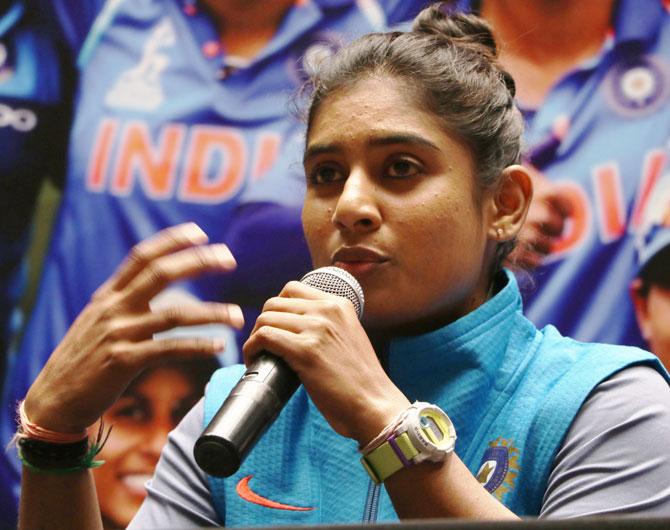'Unfortunately, women's cricket may have been set back by a couple of years by this pandemic as some of the momentum that had been built between India's success in World Cup 2017 and World T20 2020 has been lost'

Legendary Indian skipper Mithali Raj feels the COVID-19 forced break may have pushed back the growth of women's cricket by at least two years.
Mithali, Indian women's ODI captain and the world's highest run-getter in 50-over cricket, also said that a full-fledged women's Indian Premier League is still at least three years away although a fourth team can be added for the Challenger series.
"Unfortunately, women's cricket may have been set back by a couple of years by this pandemic as some of the momentum that had been built between India's success in World Cup 2017 and World T20 2020 has been lost," the 37-year-old Raj said during a webinar at the 'Re-Setting the Sports Ecosystem: Opportunities in The New Normal World' at FICCI FRAMES..
Mithali said that she had had talks with the Board of Control for Cricket in India brass with regards to a dedicated calendar for the women's national team.
"However, we have had discussions with BCCI to draw up a firm calendar for the Indian women's team so that fans can regularly cheer for the team.
"The plans have obviously been disrupted but we believe we can re-build quickly. I think a full-fledged Women's IPL is still 2-3 years away but we would certainly look to have a fourth team in the Women's Challenge that is played concurrently with the IPL," said one of the game's icons.
During the webinar, DG (SAI) Sandip Pradhan said that the emphasis will be to present India's indigenous sports in a new avatar, which will "further open up opportunities for Indian start-ups".
Pradhan spoke about re-setting the priorities.
"Being physical while leveraging digital is the new normal, so we need to re-set, re-invent and re-work our priorities.
"The SAI is organizing several online sports classes in association with the National Sporting Federations, which includes interactive sessions with young athletes about their techniques and how to develop their overall physical skills and mental abilities."
The IOA president Narinder Batra said, "Corporates must adopt at least one Indian sport and broadcasters must allocate considerable time to promote them.
"Companies must realize that the wave of one athlete performing well can indirectly impact lakhs of others."
Stressing further on corporate partnerships, he said, "We cannot expect the government to take upon itself the onus of building a world-class sporting environment when it is stretched between the many priorities of a developing economy, this is where the corporate India needs to step in, and it has to be a collective effort."












 © 2025
© 2025